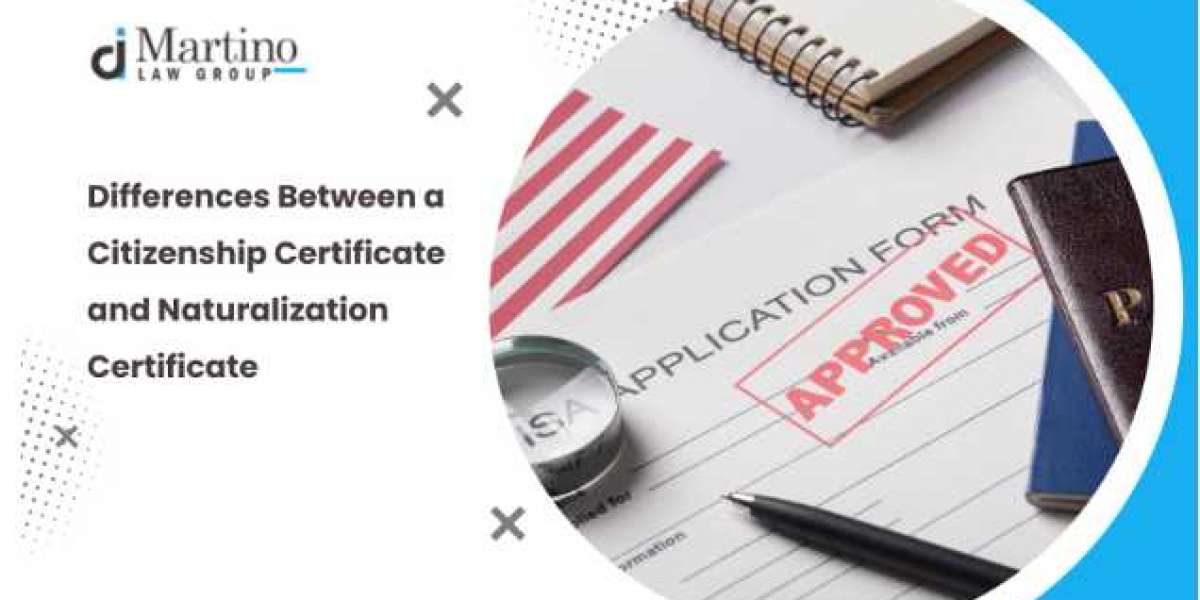Did you know that USCIS welcomed 818,500 new citizens in fiscal year 2024 during naturalization ceremonies held across the United States and around the world? However, citizenship and naturalization are two different certificates.
It is essential to learn how to distinguish between a Citizenship and Naturalization Certificate when learning about U.S. immigration documents and laws. Even though the two documents qualify as evidence of citizenship in the American country, they have radically different origins as far as the legal proceedings are concerned. The fact that these two terms are confused may result in complications, delays in the submission of official applications, or the very refusal to provide the benefits.
The guide goes into detail about citizenship vs naturalization certificates, discussing their differences, application, and the relevance of either being so significant to both the immigrants and the citizens of the U.S.
What Is a Citizenship Certificate?
The U.S. Citizenship and Immigration Services (USCIS) issues a Citizenship Certificate or, more formally, Form N-560, to a person who became a citizen of the U.S. natively, and not by his/her naturalization.
Most commonly, this certificate may apply in the following situations:
- A child born outside U.S. territory to at least one parent who is a U.S. citizen must have fulfilled some requirements regarding residency.
- The children under the age of 18 automatically became citizens through the naturalization of their parents, as long as they lived with their parents as permanent residents.
N-560 Citizenship Certificate is a legitimate document of U.S. citizenship, and can be applied for in most instances when one needs to prove their nationality.
What Is a Naturalization Certificate?
Form N-550, or the Naturalization Certificate, is the document issued to foreign-born individuals who have voluntarily applied and gone through the process of naturalization to be granted citizenship of the United States.
To qualify, immigrants must:
- Hold a lawful permanent resident status (green card).
- Meet continuous residence and physical presence requirements.
- Demonstrate good moral character.
- Pass an English and civics test, unless exempt.
Once the naturalization process is complete and the oath of allegiance is taken, USCIS issues the N-550 Naturalization Certificate. This document is the ultimate proof that someone has completed the entire legal process to become a U.S. citizen.
Citizenship vs Naturalization Certificate: Key Differences
When comparing N-550 vs N-560, the differences lie not only in the process, but also in the type of citizenship they represent.
Factor | Citizenship Certificate (N-560) | Naturalization Certificate (N-550) |
Who Receives It? | Individuals who acquired or derived citizenship through their parents | Foreign-born individuals who applied for and completed naturalization |
Basis of Citizenship | By birth or automatic acquisition through parents | By choice, after fulfilling naturalization requirements |
Application Process | Application for Certificate of Citizenship (Form N-600) | Naturalization Application (Form N-400) |
Age of Acquisition | Typically, before age 18 | Typically, adults who complete eligibility requirements |
Document Code | N-560 | N-550 |
In short, a Citizenship Certificate proves that one was already a U.S. citizen, while a Naturalization Certificate acts as a U.S citizen proof done later through a legal process.
When Are These Documents Used?
Although both documents serve as proof of U.S. citizenship, the context in which they are used may differ.
Common Uses of a Citizenship Certificate (N-560):
- To apply for a U.S. passport.
- To prove citizenship when enrolling in school or university.
- To establish eligibility for federal jobs or benefits.
- To demonstrate citizenship status when sponsoring relatives for immigration.
Common Uses of a Naturalization Certificate (N-550):
- To apply for a U.S. passport after naturalization.
- To prove eligibility for voting and jury duty.
- To establish citizenship when dealing with Social Security or other government agencies.
- To use as a lifelong record of having completed the naturalization process.
How to Apply for Each Document?
The application procedures for both documents are different. Refer to the step-by-step process below for a detailed explanation:
Applying for a Citizenship Certificate
- Submit Form N-600 (Application for Certificate of Citizenship) to USCIS.
- Provide documents such as the parents’ citizenship proof, the child’s birth certificate, and proof of residence in the U.S. if applicable.
- Pay the required filing fee.
- Attend an interview if USCIS requests it.
- Receive the N-560 Citizenship Certificate once approved.
Applying for a Naturalization Certificate
- Submit Form N-400 (Application for Naturalization) to USCIS.
- Provide biometrics and attend the naturalization interview.
- Pass the English and civics test (unless exempt).
- Take the Oath of Allegiance in a naturalization ceremony.
- Receive the N-550 Naturalization Certificate as proof of citizenship.
Protecting These Certificates
Be it the Citizenship Certificate or the Naturalization Certificate, they are sensitive documents that cannot be replaced. Their loss may create problems, most notably when the individual wants to travel abroad or seeks official benefits. Although one could order a replacement by filling out Form N-565, it can take months and entails fees.
Experts strongly recommend:
- Keeping the original in a safe place (such as a fireproof home safe).
- Use a U.S. passport as the primary proof of citizenship when possible.
- Ordering multiple certified copies for routine applications.
Understand U.S. Immigration Laws Better with Di Martino Law Group
The difference between a citizenship and a naturalization certificate points to a relatively easy, but essential fact: both documents can testify to U.S. citizenship, but they are the result of various paths leading to the same place.
The N-560 Certificate of Citizenship records citizenship attained either by family or birth conditions, whereas the N-550 Certificate of Naturalization records citizenship attained through the official process of naturalization. Due to the complex nature of these documents, one needs to understand their significance to protect their identity and legal status in the future.
Need help understanding which document applies to your case? Expert immigration consultants can guide you in choosing the right path and ensure all paperwork is accurate. Connect with Di Martino Law Group today to avoid costly mistakes and streamline your paperwork.








